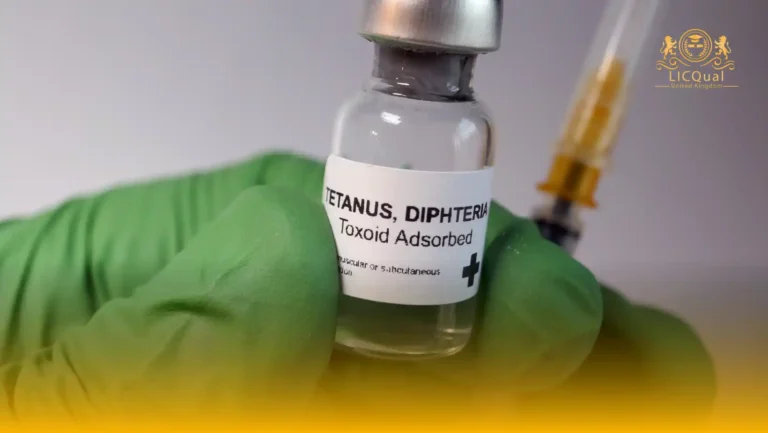In today’s fast-paced food industry, ensuring the safety and quality of food during delivery and storage is more critical than ever. The LICQual Certificate in HACCP Food Delivery and Storage is a globally recognized program designed to equip professionals with the essential knowledge and skills required to maintain the highest standards of food safety.
Rooted in the principles of Hazard Analysis and Critical Control Points (HACCP), this course provides a comprehensive understanding of how to identify, evaluate, and control hazards that may compromise food safety during transportation and storage processes. Whether you are involved in food logistics, warehouse management, or supply chain operations, this certification empowers you to align with international best practices and regulatory compliance.
The LICQual Certificate in HACCP Food Delivery and Storage is tailored to meet the growing demand for food safety expertise in the handling, transportation, and storage of food products. This course covers the critical aspects of HACCP implementation specific to delivery and storage environments, including risk assessment, temperature control, contamination prevention, and hygiene standards.
Participants will gain insights into the legal and regulatory frameworks governing food logistics, as well as practical tools for maintaining cold chain integrity, minimizing cross-contamination, and ensuring traceability throughout the supply chain. The curriculum is developed to reflect the latest industry trends and global standards, making it highly relevant for food handlers, logistics staff, warehouse supervisors, quality control personnel, and anyone involved in food distribution.
By the end of the course, learners will be equipped to apply HACCP principles effectively in real-world delivery and storage operations, ensuring food safety from supplier to consumer. This certification not only enhances professional credibility but also contributes to building consumer trust and upholding brand reputation in a competitive marketplace.
Course Overview
Qualification Title
LICQual Certificate in HACCP Food Delivery and Storage
Total Units
6
Total Credits
18
GLH
72
Qualification #
LICQ2200083
Qualification Specification
To enroll in the LICQual Certificate in HACCP Food Delivery and Storage, applicants must meet the following criteria:
|
Qualification# |
Unit Title |
Credits |
GLH |
|---|---|---|---|
|
LICQ2200083-1 |
Introduction to HACCP and Its Application in Food Delivery and Storage |
3 |
12 |
|
LICQ2200083-2 |
Food Safety Hazards in Delivery and Storage |
3 |
12 |
|
LICQ2200083-3 |
Temperature Control and Safe Food Storage Practices |
3 |
12 |
|
LICQ2200083-4 |
Food Handling, Packaging, and Transportation Protocols |
3 |
12 |
|
LICQ2200083-5 |
Documentation, Traceability, and Compliance in Food Delivery and Storage |
3 |
12 |
|
LICQ2200083-6 |
Monitoring, Auditing, and Continuous Improvement of Food Safety Systems |
3 |
12 |
By the end of this course, learners will be able to:
Introduction to HACCP and Its Application in Food Delivery and Storage
- Demonstrate a thorough understanding of the HACCP system and its principles.
- Explain the significance of applying HACCP in food delivery and storage to ensure food safety.
- Identify relevant regulatory requirements and international standards for food safety during transportation and storage.
- Understand the key role of HACCP in preventing foodborne illnesses and maintaining high safety standards in food handling.
Food Safety Hazards in Delivery and Storage
- Identify and classify biological, chemical, and physical hazards that could impact food safety during delivery and storage.
- Conduct risk assessments to evaluate the potential impact of hazards on food safety.
- Propose appropriate control measures to manage and mitigate identified hazards in food delivery and storage processes.
- Assess the impact of environmental factors such as temperature and handling on food safety.
Temperature Control and Safe Food Storage Practices
- Demonstrate knowledge of best practices for temperature control in food delivery and storage.
- Understand how to implement temperature monitoring systems and ensure safe food storage conditions.
- Apply guidelines for proper food storage to maintain quality and prevent contamination.
- Identify and manage different food storage requirements based on food type and safety needs.
Food Handling, Packaging, and Transportation Protocols
- Implement safe handling procedures to prevent contamination during the food delivery process.
- Understand the role of packaging in protecting food quality and safety during transportation.
- Develop and apply effective transportation protocols to maintain food safety from origin to destination.
- Evaluate and apply best practices for food delivery to ensure adherence to safety and quality standards.
Documentation, Traceability, and Compliance in Food Delivery and Storage
- Understand the importance of accurate documentation for food safety compliance and traceability.
- Develop and maintain effective systems for recording and tracking food delivery and storage conditions.
- Ensure compliance with food safety regulations, including proper record-keeping and documentation practices.
- Demonstrate the ability to trace food products through the supply chain and maintain compliance with HACCP standards.
Monitoring, Auditing, and Continuous Improvement of Food Safety Systems
- Apply monitoring techniques to ensure HACCP compliance in food delivery and storage operations.
- Conduct internal audits to assess the effectiveness of food safety systems and identify areas for improvement.
- Develop corrective actions and recommendations based on audit findings to improve food safety processes.
- Implement continuous improvement strategies to enhance food safety management and ensure ongoing compliance with HACCP guidelines.
This diploma is ideal for:
Assessment and Verification
All units within this qualification are subject to internal assessment by the approved centre and external verification by LICQual. The qualification follows a criterion-referenced assessment approach, ensuring that learners meet all specified learning outcomes.
To achieve a ‘Pass’ in any unit, learners must provide valid, sufficient, and authentic evidence demonstrating their attainment of all learning outcomes and compliance with the prescribed assessment criteria. The Assessor is responsible for evaluating the evidence and determining whether the learner has successfully met the required standards.
Assessors must maintain a clear and comprehensive audit trail, documenting the basis for their assessment decisions to ensure transparency, consistency, and compliance with quality assurance requirements.







